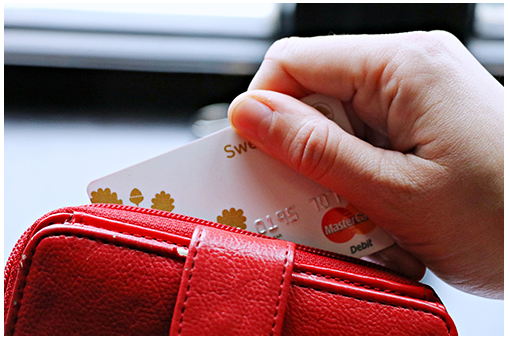Cashless payments are becoming a choice for both businesses and consumers. COVID-19 has exposed a new reality. Fear of transmission is at an all-time high, which has changed normal business and consumer interactions. Consumers are cautious with cash and coins exchanging hands; being a facilitator for the spreading of microscopic organisms. To reduce risks to customers, businesses are looking for alternative solutions to meet new customer demands. Many businesses are operating in remote working environment without the capability of accepting cash, therefore increasing the need for cashless payment solutions.
There is a new major issue that is pushing businesses to move to cashless payments during COVID-19, a national coin shortage. The U.S. Mint reduced coin production with temporary facility shutdowns to keep employees safe. Another cause of national coin shortages is the COVD-19 business shutdowns and social distancing. Bills still had to be paid and items needed purchased, which shifted many consumers to shopping and paying bills online. There has also been a major reduction in the use of coin operated laundromats, vending machines, and cash for coin machines. This decline in consumer coin usage has impacted banks obtaining and recirculating coins. U.S. stores are starting to realize the impact of a national coin shortage. The question arises, “Is coin shortages going to force U.S. businesses to using cashless cashless payments?”
What are Businesses Doing About Coin Shortages?
Businesses are scrambling to ensure they can provide cash paying customers change. While some businesses scramble to find change; other businesses are finding alternative solutions. Cashless payments are becoming a choice solution for both businesses and consumers. Cashless payments are transactions made using debit, credit cards, or ACH payments.
Grocery store chain, Kroger announced they will no longer be able to return coins to cash paying customers. Kroger provides a few options to overcome the coin shortage hurdle. The grocery store announced that cash paying customers have the option of donating change, keep a credit for future purchase or use another a cashless payment. In May Starbucks opened 85% of their stores with cashless payments through their app. To protect customers and employees from COVD-19, Starbucks CEO, Kevin Johnson stated in a letter the emphasis that customers desire to use their app. He reported that over 20 million customers already use their app to place orders and accept payments.
Consumer Worries of a Cashless Society
Consumers and businesses are somewhat concerned about what has been deemed as a “cashless society”. Some of the worry is aimed at privacy and giving the government more control of bank accounts. A large concern is the risk of cyber-attacks and fraud. Other problems are with those consumers that don’t use or have access to banks; referred to as unbanked or underbanked. According to CNBC, 25% of U.S. households are unbanked or underbanked. There are still solutions that can meet all of these concerns.
Cashless payments have been proven to work for businesses and consumers. In 2019 the Mercedes-Benz Stadium (MBS) in Atlanta moved from cash only payments to accepting card and mobile payments only. MBS reported a success with their first cashless year, saving over $350,000 in costs while providing faster food and beverage services. For cash paying and unbanked consumers they offered machines that converted cash into pre-paid cards.
Cashless Payments and Security
To help prevent cyber-attacks, payment processors have security measures to protect consumers. One way to reduce payment fraud is by using hosted tokenization. Hosted Tokenization takes the bank account or card number and replaces it with random characters. Sensitive payment information is never stored, which can reduce the risk of information theft. Payment processors also have strict compliance they must follow in order to process payments. Compliance regulations range from verifying identity to PCI DSS compliance.
Business Planning for Cashless Payments
Businesses have many options for becoming cashless other than the traditional POS swiping machine. Third party payment processors offer cashless solutions that can meet the needs for grocery stores, restaurants, healthcare, housing authorities to insurance companies. Payments can be collected online, using a payment app, bill pay kiosks, over-the-phone, or text payments.
The U.S. is closer than ever to shifting to a cashless society. In May 2020, 93% of accessible money was available in a non-physical method, i.e. card, ACH, and digital. Is your business ready for cashless payments? It’s important for businesses to have cashless options to continue to accept payments. Cashless payments provide businesses more options to collect payments from anywhere. Planning today can help businesses continue to operate for a successful tomorrow.
Cash was King, but Digital is taking the mountain!
Contact PaymentVision to learn more about planning cashless payment options for your business.











